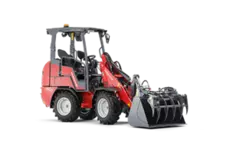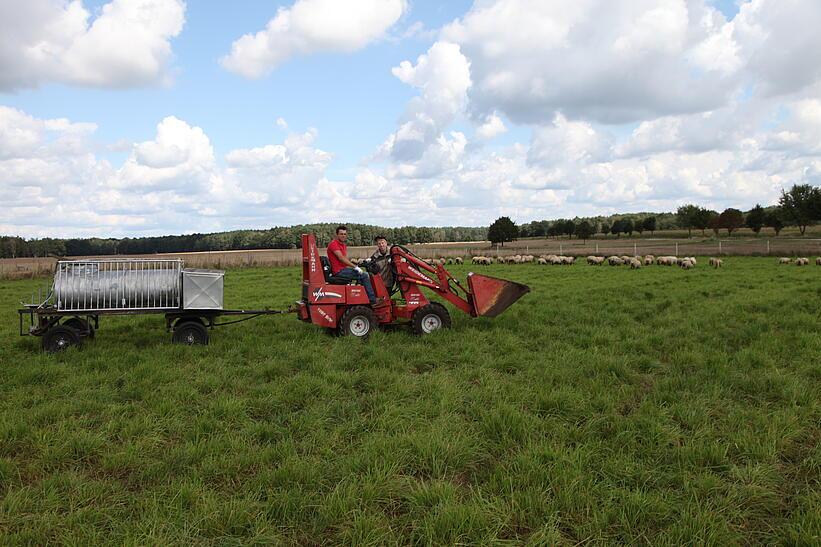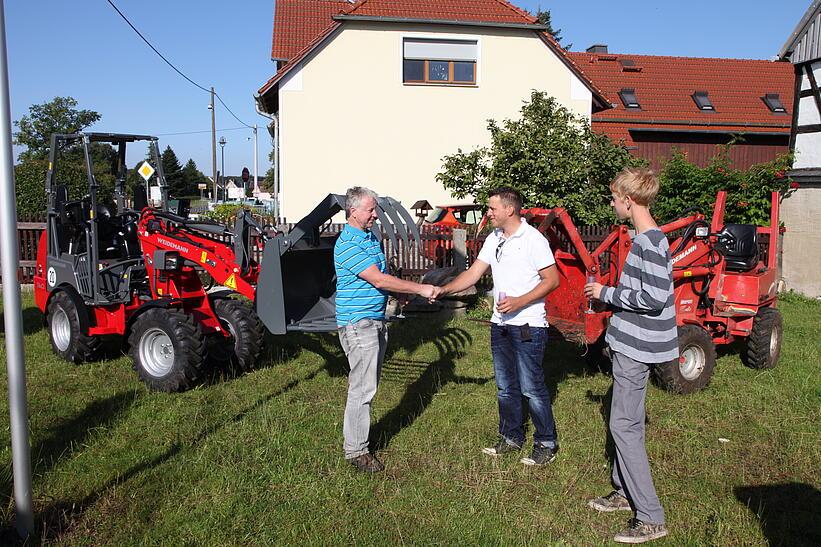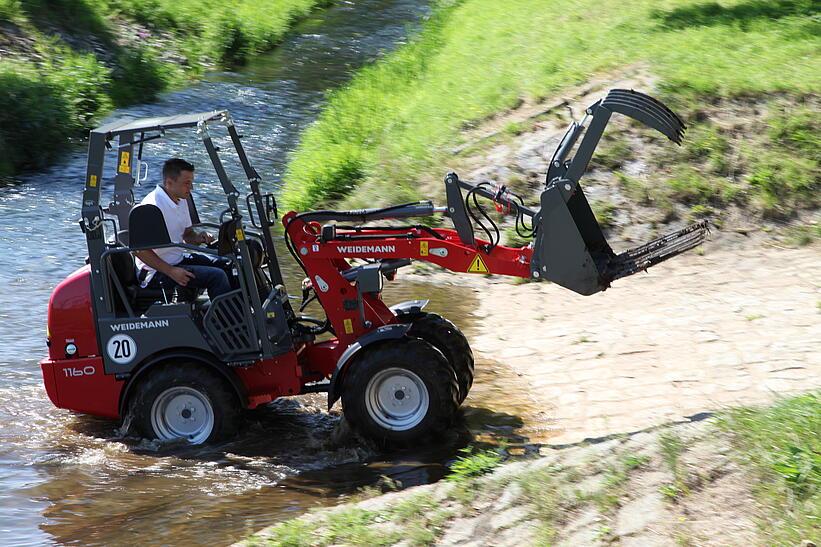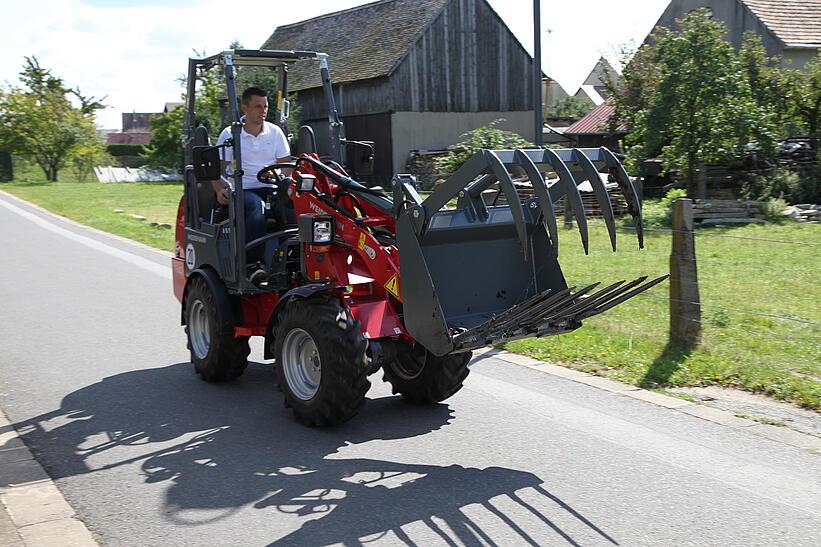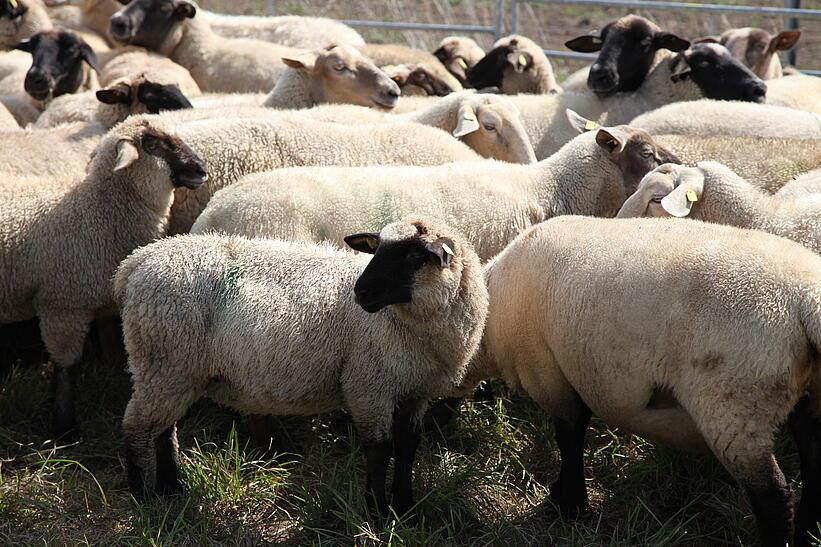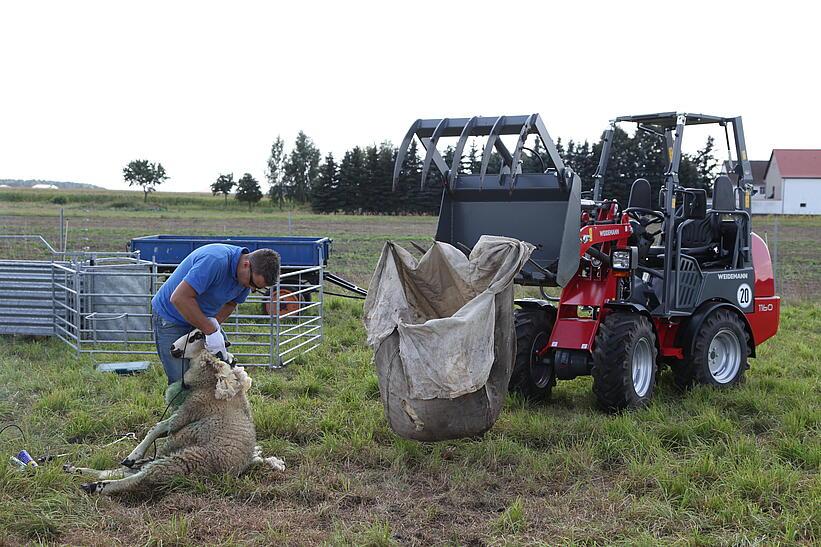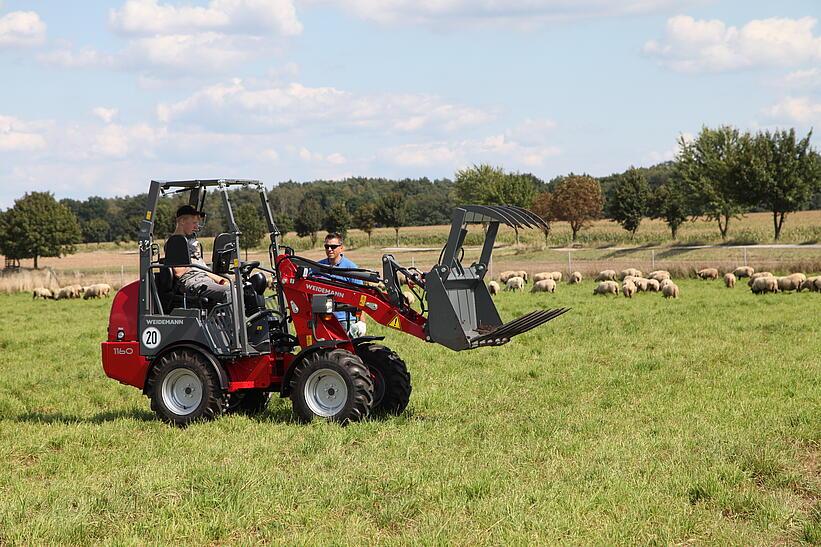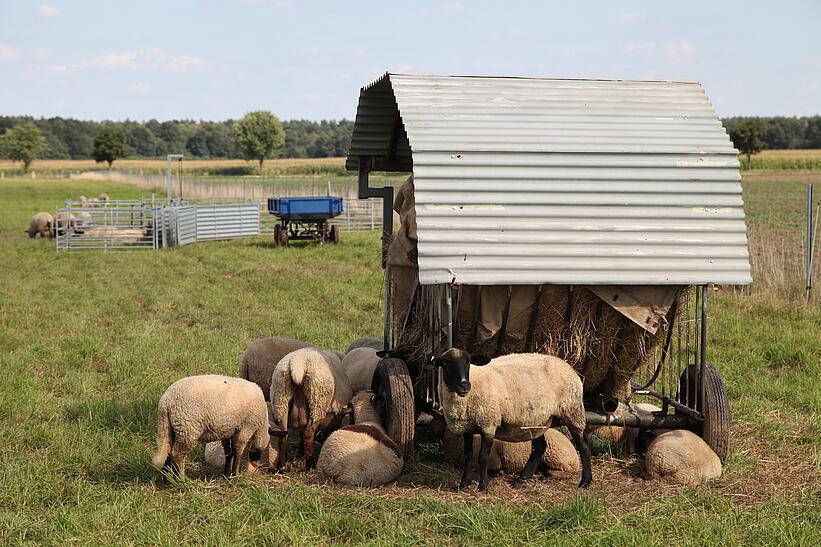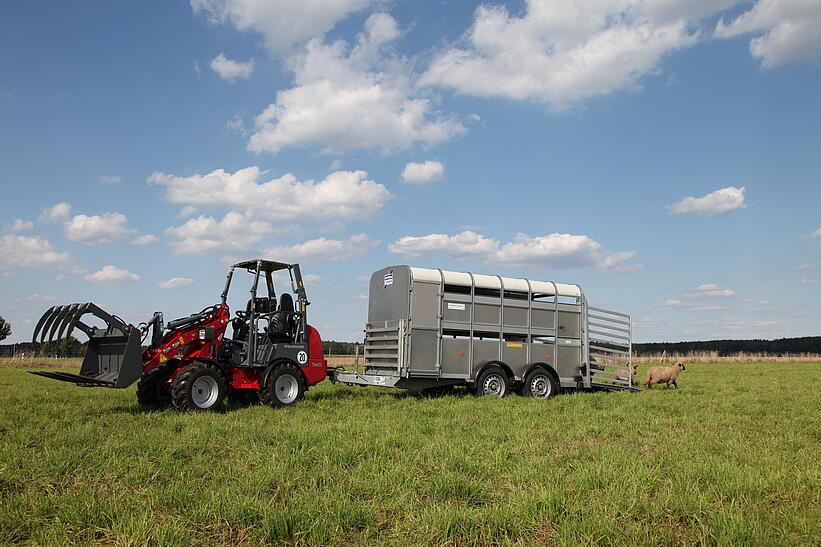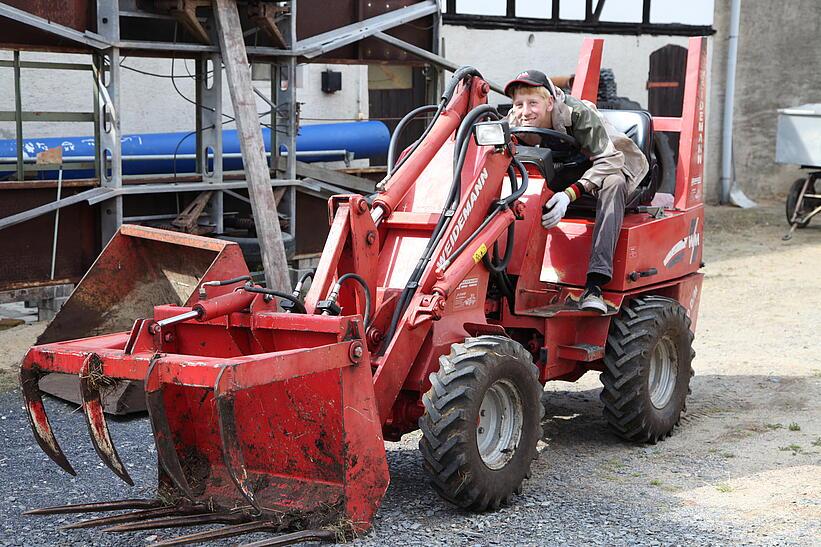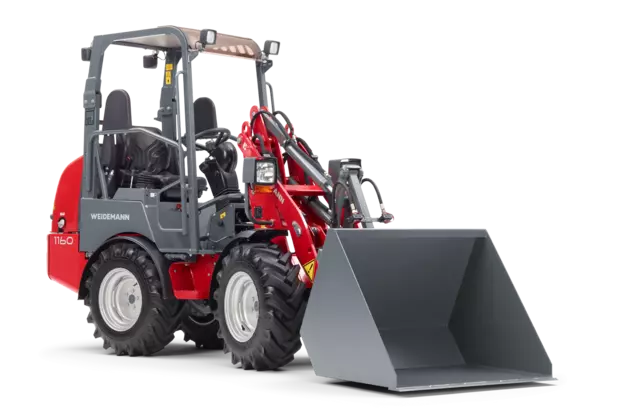Where you can count sheep and quality still counts
“I only buy quality products for my company.”
The shepherd craft in Lausitz is strongly influenced by the idealism of a natural profession and is only exercised by few people with a great deal of commitment and dedication. Martin Just is an avid sheep farmer. He gets help for the sheep from Weidemann. About five years ago, Just bought a used Weidemann 1050 D/M. Since he has only had good experiences with the machine, he decided to replace this with a new Weidemann 1160. It was reason enough for us to pay a visit to the dedicated shepherd. Shortly before the destination, it became clear what characterises this landscape.
30 km from the border to Poland and the Czech Republic, the area is dominated by extensive agricultural fields and meadows. Only no sheep were yet to be
seen. The town signs were bilingual. This gives an indication of the Sorb people living here. Arrived in Saxon Cunnewitz, Martin Just was already waiting with breakfast in the sheep pen. Here, we could finally see the first sheep. “Sheep farming is dying out in Lausitz,” says Just. “There are only a few people who can identify with this profession.” Just too only conducts his passion as a side job. There is also 17-year-old Lukas from the neighbourhood, who spends every free minute he has with the shepherd in order to drive his loader enthusiastically. Lukas is a great help for Martin Just.
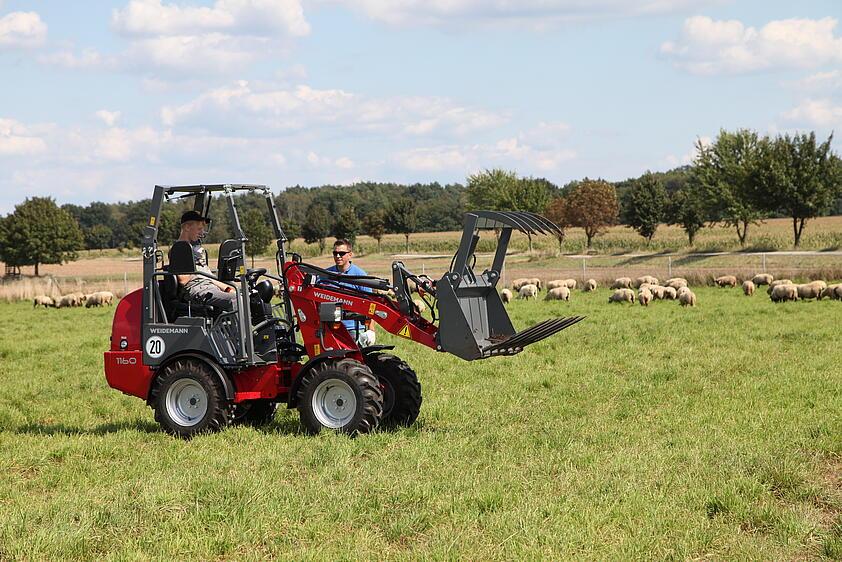
“Sometimes you just need someone to work with you,” says the shepherd. The Weidemann machine is mainly used for harvesting hay, transport work, loading manure and in the forest. “And every day we notice new tasks for which we can use the loader.” Martin Just had several reasons for the decision to replace the old 1050 with a new Hoftrac 1160: The safety of Lukas is particularly important for him. “Because Lukas really likes to drive the loader. Some days I don’t even get to drive at all, because Lukas will simply not give it up.” The machine is just the right size for Lukas and gives him a great balance to the busy everyday school life.
In addition, the quality of the Weidemann machine compared to the competition was a decisive argument for the full-time development engineer Martin Just: “I only buy quality products for my company, from trailers to farm loaders. I think that a Weidemann is a good foundation for the success of a commercial sheep farm.” Weidemann has continued to develop from year to year and this is noticed in many areas: From the serviceability (“We still like to get our hands dirty here”) to the driving and usage properties, to the look — Weidemann simply has the edge. Being dot-approved (road circulation approval) was also an important prerequisite for the part-time shepherd. “We simply get around faster on the road than in the meadows and fields, on which we previously always had to drive.” Only Lukas, of course, then has to ride by bicycle.
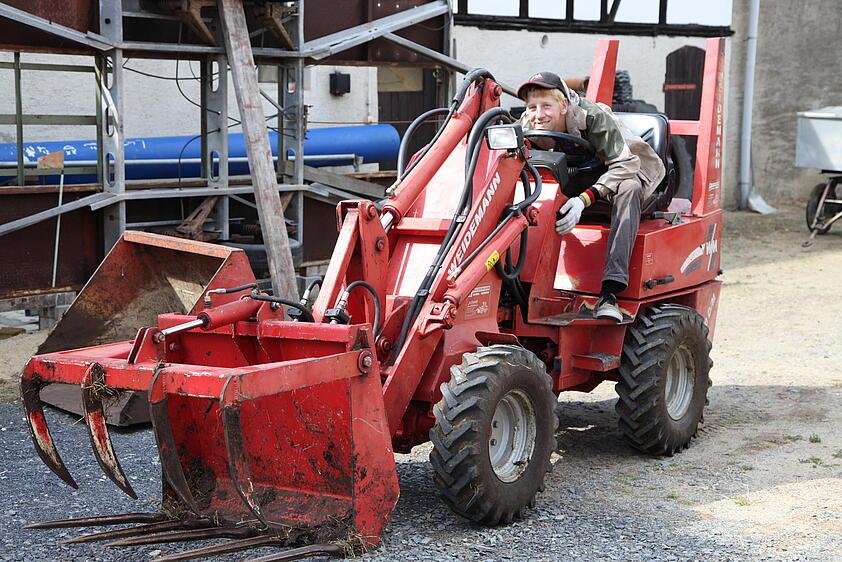
Since the shepherd also wants to work with the new Weidemann in existing buildings, he also chose the fold-down operator’s canopy. With so many great expectations for the new Weidemann 1160, the eyes of all those involved then lit up during the handover from salesman Dieter Wüsche from Femtech Luttowitz GmbH & Co. KG. The summary of the first drive is correspondingly positive: “This is a really good machine and a great support for us that is
very intuitive to operate!” Lukas also got the hang of it quickly. And so with the help of shepherd Martin Just and his Weidemann 1160, the shepherd craft will hopefully remain an important part of the cultural landscape of Lausitz
for a long time to come.
